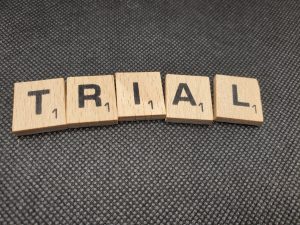Different Criminal Case Outcomes Explained
- Comments Off on Different Criminal Case Outcomes Explained

Many clients call us wanting to know the different options they have when facing criminal charges. In this article, we will explain most of the common outcomes in a criminal case here in Georgia.
What happens if the charges are dropped?
Being charged with a crime doesn’t always mean your case goes to trial. The prosecuting attorney can choose to drop charges for a number of reasons, including a request from the alleged victim, their refusal to participate in the case, or weak or inadmissible evidence. When the state drops the charges before the case goes to trial this is called “nolle prosequi”.
You won’t be convicted of a crime once the charges are dropped, but the charges don’t automatically go away either. To have the charges and arrest removed from your record, you must have them expunged.
What happens if you plead guilty?
In almost all cases, you should only plead guilty under the advice of your lawyer. In most cases, that will when the prosecution and your defense attorney work out a plea deal together. A hearing will be scheduled with the judge to discuss the guilty plea.
You’ll usually need to plead guilty in court so that your plea becomes part of the record. When the hearing takes place, you must also testify under oath to confirm guilt. This includes admitting to performing the action in question, understanding the charges, understanding the guilty plea, and waiving the right to a jury trial.
After entering your plea, you’re responsible for the sentence you agreed to. This can include jail time, probation, fines, and other alternatives. Depending on your legal representation, you may also be responsible for paying attorney fees.
What happens if you are found guilty at trial?
If you enter a not guilty plea at your arraignment, you’re essentially asking the prosecution to present all their admissible evidence. This means your case will go to trial to give the prosecutor an opportunity to prove the charge beyond a reasonable doubt.
If the trial concludes with a guilty verdict, you’ll be given a sentencing date. The judge will determine the appropriate sentence, given relevant guidelines, the nature of the crime, your criminal record, and other factors. You’ll then receive a sentence that can include probation, jail time, a fine, community service, or other alternatives.
What happens if you are found not guilty at trial?
If a criminal trial results in a not guilty verdict, you’ll be released from custody. You also won’t have to worry about later being convicted for the same crime because of the double jeopardy rule. Double jeopardy prohibits the state from bringing the same charges against you twice for the same act.
In some cases, you may be able to have the charges expunged so they won’t become part of your permanent record.
What happens if there is a mistrial?
Mistrials refer to trials that cannot be completed for some reason, such as juror misconduct, inability to reach a verdict, or other errors. Either the prosecution or the defense can make a motion for a mistrial, which the judge can then grant or deny. Sometimes the prosecution can retry the case. Some mistrials lead to the charges not being able to be brought again because of double jeopardy.
What should I do if I’m facing charges?
If you’re facing criminal charges, it’s best to seek out an experienced criminal defense attorney here at Bixon Law. We can provide professional advice and lead you through the complex system of arraignments, plea bargains, trials, and sentencing. Give us a call today.









